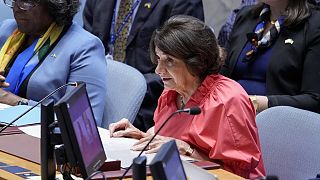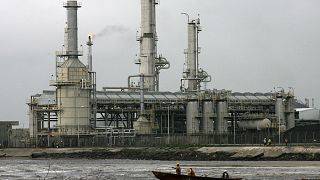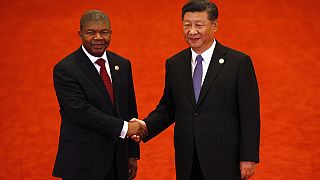Angola
Angola is bent on banning the hunting of wildlife despite resistance from hunters and bushmeat sellers.
At a market on the outskirts of Menongue, near the Okavango national park in southern Angola, female traders sell their day’s stock of bushmeat.
Bushmeat locally known as “Carne de zaza” in Portuguese, is popular in Angola and easily accessible.
As the government intensifies the clampdown on wildlife trade, customers find it a bitter pill to swallow as they may have to go without the loved delicacy.
“No, bushmeat should not be banned because if you compare chicken with this kind of meat, this is better. So, they should not ban it,” a bushmeat consumer, Linda Massengo said.
Some hunters and bushmeat sellers have vowed to continue with the business despite government’s efforts to curb the illegal trade.
“Today, it is quite difficult to find employment. This is our only means of making a living. We have no jobs. It’s useless to turn to crime and our children cannot starve,” a hunter who identified himself as Andre said.
Angola is home to Africa’s largest bushmeat and ivory market.
The southern African country is now a transit point for illegal ivory.
According to the United Nations, illegal logging, mining, poaching and other environmentally destructive trade earned criminal gangs up to $258 billion last year.
“We want to take advantage of the wildlife to diversify our economy. And for us to work together to mitigate poverty reduction and also to increase employment, to diversify our economy and production and to participate in the progress of future generations,” said. Fatima Jardim, Angola’s Environment Minister.
While Angola has rebuilt an impressive infrastructure and is recovering from the nearly three decade war, the country remains mired in poverty.
Reuters












02:10
Rwanda's mountain gorillas: A conservation success Story
02:10
Black rhinos thrive in Kenyan sanctuary
01:28
World Rhino day - hope is best yet to save the Northern White Rhino
Go to video
South Africa: the world's largest rhino farm saved by an NGO
Go to video
Five elephants shot in Chad, fears of renewed poaching
00:54
Retail sales in South Africa continue downward trend